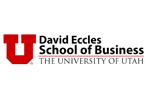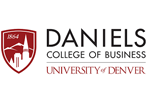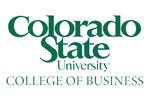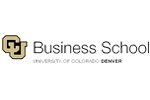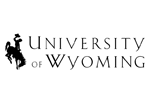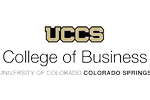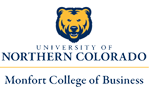Daniels Fund Ethics Initiative
The Daniels Fund Board of Directors established the Daniels Fund Ethics Initiative Collegiate Program in 2009 as a five-year pilot. The effort was officially launched in early 2010 with eight business schools at universities in Colorado, New Mexico, Utah, and Wyoming as initial partners. Due to its success during the pilot phase, the Collegiate Program renewed in 2014 for an additional five years (2015–2019), and the number of partners now includes ten business schools and one law school. The Collegiate Program drives the strengthening of principle-based ethics education throughout each participating school. The ultimate goal is to instill a high standard of ethics in our young people.
Participating schools in the Daniels Fund Ethics Initiative Collegiate Program become members of the Daniels Fund Ethics Consortium. Working together, Ethics Consortium members leverage individual school achievements to further strengthen and expand ethics education in the region. For more information on the Collegiate Program, click here.
The Daniels Fund Ethics Initiative at the David Eccles School of Business
The Daniels Fund Ethics Initiative at the David Eccles School of Business at the University of Utah is a resource for principle-based ethics education, serving students, educators, and the business community.
We are one of eight original participating schools in the initiative and an active Daniels Fund Ethics Consortium member. The Daniels Fund Ethics Initiative at the University of Utah seeks to strengthen the teaching of principle-based ethics, promotes the practical application of ethics-based principles in the curriculum, provides students opportunities to practice ethical leadership and ethical decision-making, and engages the business community.
The Daniels Fund Ethics Initiative at the David Eccles School of Business has four areas of focus, organizing resources to identify and address ethical considerations in specific industries or context:

Behavioral Ethics
Why do good people do bad things? How do people make ethical decisions? Behavioral ethics seeks to understand the rationalizations and biases leading to misconduct.
Behavioral Ethics
Why do good people do bad things? How do people make ethical decisions? Behavioral ethics seeks to understand the rationalizations and biases leading to misconduct.
Ethics and Technology
What are the potential risks for ethical misconduct in the future? Explore the ethical risks in communication and technology innovation.
Ethics and Fraud
Explore the dangers posed by fraud, identify fraudulent scenarios and make principle-based ethical decisions to prevent fraudulent actions
What are principle-based ethics?
The Daniels Fund Ethics Initiative and its components extend beyond philosophy and theory to real-world practical application of ethical principles as a framework for personal and organizational decision-making and leadership. Our belief is that ethics education must convey that principles are constant foundations — not relative to a specific situation — and that doing what is right prevails over self-interest when the two may appear to be in conflict.
The Daniels Fund, along with our business school partners, established a set of straightforward and understandable principles that form the philosophical foundation of all Ethics Initiative activities.
Integrity
Act with honesty in all situations
Trust
Build trust in all stakeholder relationships
Accountability
Accept responsibility for all decisions
Transparency
Maintain open and truthful communications
Fairness
Engage in fair competition and create equitable and just relationships
Respect
Honor the rights, freedoms, views, and property of others
Rule of Law
Comply with the spirit and intent of laws and regulations
Viability
Create long-term value for all relevant stakeholders

David Eccles School of Business
The David Eccles School of Business has a long history of commitment to the teaching and research of ethics in a variety of ways. At the University of Utah, developing a sense of individual responsibility is foundational. We prepare students to dream not only about the type of job they want, but about what kind of person they want to be.
To supplement learning and our career counseling, we share with students self-reflections of top business leaders, talking in a very genuine way about the principles and values developed over the course of their lifetimes, and sharing the insights that have guided their success. This builds on the lessons taught through business ethics courses for all students, as well as the Foundations of Business Thought course, which introduces students to the cultural, historical, and philosophical basis of business through the examination of classic texts in the humanities.
These concentrated efforts facilitate the opportunities to observe and experience business ethics in practice. The curriculum, internship, ethics case competitions, field study, business ethics lectures by the leaders, and the field experiences at the University of Utah teaches students to identify and prepare themselves to manage ethical dilemmas when they arise.
What students learn
Critical Analysis
An understanding of the economic and social implications of doing business globally, mastery of the functional areas of business, including e-business savvy, combined with an appreciation of the wisdom gained by studying a broad range of academic disciplines and by interacting with a diverse student body and faculty.
Effective Communication
An ability to write and speak clearly and to work within group settings in order to effectively accomplish personal and professional goals.
Professional Integrity
Guidance on the importance of values and ethics in business, which, in turn, helps students develop their own sense of professional integrity.
Entrepreneurial Spirit
The right mix of traditional classroom experience and new venture idealism applied to small and large corporate settings.
Consortium Members
Our consortium leverages the achievement of our individual business schools to strengthen ethics education in the West.


